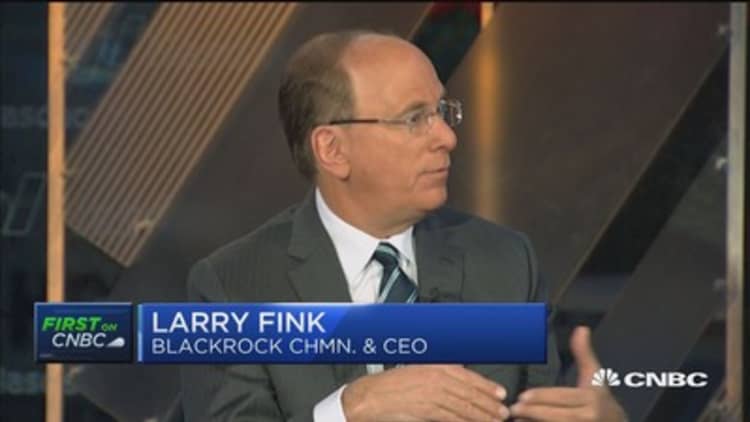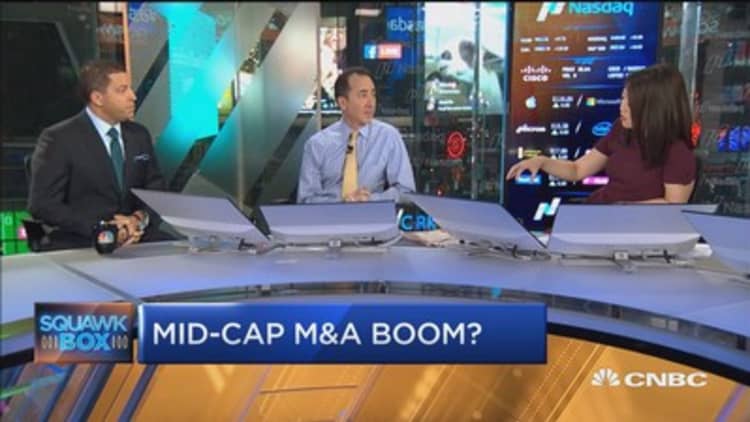
JPMorgan Chase CEO Jamie Dimon thinks there could be another stimulus coming to the market — but it wouldn't come directly from government.
Speaking on Tuesday to reporters on behalf of the Business Roundtable, an advocacy group Dimon currently chairs, he said the act of repatriating corporate cash held outside the U.S. back into the country would spur substantial economic growth, regardless of how companies use those funds.
"If all companies did [with repatriated funds] was pay dividends and buy back stock, think of that as QE4 ... and far cheaper, in my opinion," Dimon said, comparing the stimulative effect to that of the Federal Reserve's multiyear monetary easing. "The shareholder will decide what to do with it. It's not like it disappears after that. It is fuel to the system."

Dimon warned that putting restrictions on how repatriated funds could be used might preclude the U.S. from economic activity that would remain abroad instead.
"That money that isn't brought back is going to be reinvested in a foreign country, in a plant or acquisition, which has been happening, and never to return," he said.
Moody's estimated untaxed profits overseas would reach $1.77 trillion at the end of 2016, up from $1.68 trillion at the end of 2015.
The Trump administration has a clear desire to bring that money back home, though it's unclear to what extent companies would take advantage of a one-time holiday. Goldman Sachs' chief equity strategist, David Kostin, estimated some $200 billion would be repatriated, with about $150 billion used for corporate buybacks.
Both parties in Congress have sought to bring that money back to the U.S., but they disagree on what program it should fund: Democrats have sought to use a one-time repatriation holiday to fund infrastructure plans; a current House Republican tax plan uses the funds from repatriation to cover lower rates across the board.
Business Roundtable surveyed its 200 CEO members on which single policy would have the most pro-growth effect on their business. Tax reform was the overwhelming result.
Watch: Repatriation favors mid-cap stocks


